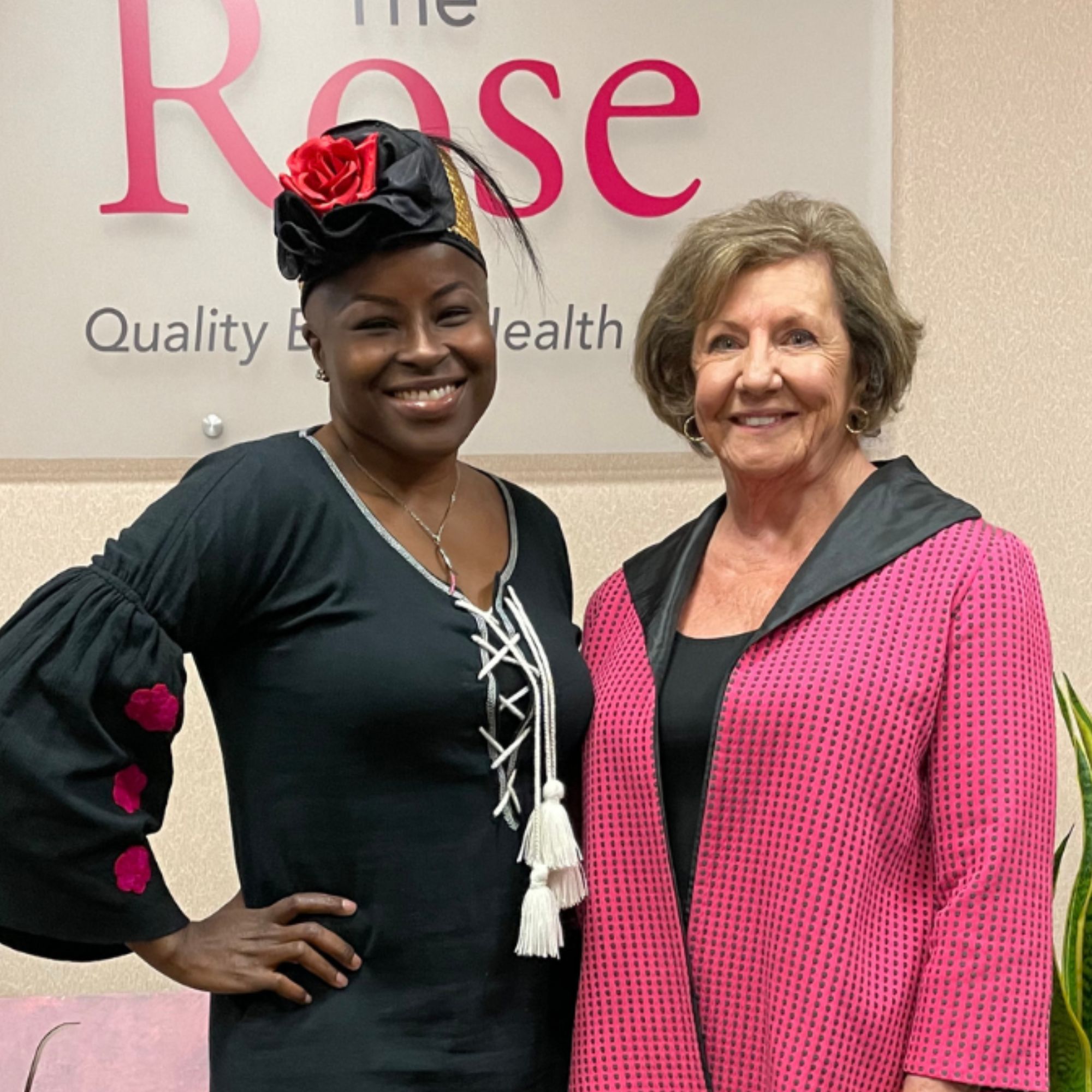Black women face a 40% higher risk of breast cancer. Add family history to the mix and still, Kim Roxie refuses to be deterred.
In honor of Black History Month, we’ll revisit her story and that of her mother’s.
As one of The Rose’s biggest supporters in the black community and the visionary behind LAMIK Beauty, a cosmetics line tailored to women of color featuring vegan, natural, and organic products, Kim’s journey epitomizes resilience and empowerment.
We’ll talk about the impact of losing her mother to breast cancer, and you’ll hear about her relentless efforts to mobilize the Black community in the fight against this disease.
Help us grow the show by subscribing to the show and sharing with your family and friends. And please consider supporting our mission. Your donation could help save the life of an uninsured woman.




